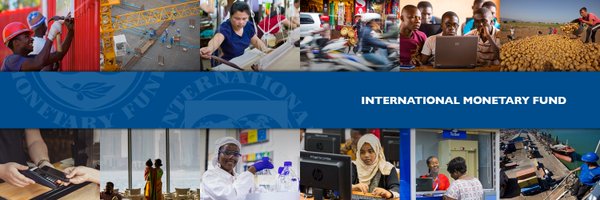 (AGENPARL) - Roma, 23 Settembre 2022
(AGENPARL) - Roma, 23 Settembre 2022(AGENPARL) – ven 23 settembre 2022 The latest IMF analysis of global economics, finance, development and policy issues shaping the world. []
[IMF Weekend Read]
Dear Colleague,
In today’s edition, we focus on the recession risks facing the global economy, widening inequalities in sub-Saharan Africa, how international regulation could instill confidence in crypto, remittances in central America, equitable education and basic skills, OPEC’s impact on oil prices, and much more.
Global Economy
Why Countries Must Cooperate on Carbon Prices
(IMAGE: BLOOMBERG)
Central banks must continue to raise interest rates to rein in inflation even as it becomes harder to predict whether the global economy will slide into recession next year, the IMF’s Managing Director Kristalina Georgieva said on Wednesday.
“Whether we meet the technical definition of recession or not, I do expect that for hundreds of millions of people it will feel like recession.”
Even so, Georgieva said price stability was of paramount importance. Without it, global growth would slow and those with the lowest incomes would suffer the most.
“Inflation is a tax upon the poor.”
Sub-Saharan Africa
(IMAGE: IMF)
Sub-Saharan Arica’s inequalities widened during the pandemic, with the region’s least-resilient economies and lowest-skilled informal workers bearing the brunt, IMF Deputy Managing Director Antoinette Sayeh told a conference on Tuesday.
“Sustained inequality can also leave long-lasting scars and undermine economic, social and political stability.”
(CREDIT: ROGER BROWN/ PEXELS)
The regulatory fabric is being woven, and a pattern is expected to emerge. But the worry is that the longer this takes, the more national authorities will get locked into differing regulatory frameworks.
“A global regulatory framework will bring order to the markets, help instill consumer confidence, lay out the limits of what is permissible, and provide a safe space for useful innovation to continue,” Narain and Moretti write.
—————————————————————
(CREDIT: PAPABEAR/ISTOCK BY GETTY IMAGES)
Voting power and decision-making at the IMF reflect its member countries’ relative economic position. The IMF works to ensure that its governance structure keeps pace with changes in the world economy, including the larger role that emerging market and developing economies now have. Check out our latest [factsheet](Factsheet%20How%20the%20IMF%20Makes%20Decisions:%20https:/www.imf.org/en/About/Factsheets/Sheets/2022/How-the-IMF-makes-decisions) to learn more.
WEEKLY ROUND-UP
—————————————————————
MARK YOUR CALENDAR
—————————————————————
[profile]
Nick Owen
Editor
IMF Weekend Read
Thank you again very much for your interest in the Weekend Read! Be sure to let us know what issues and trends we should have on our radar.
Connect on Social

